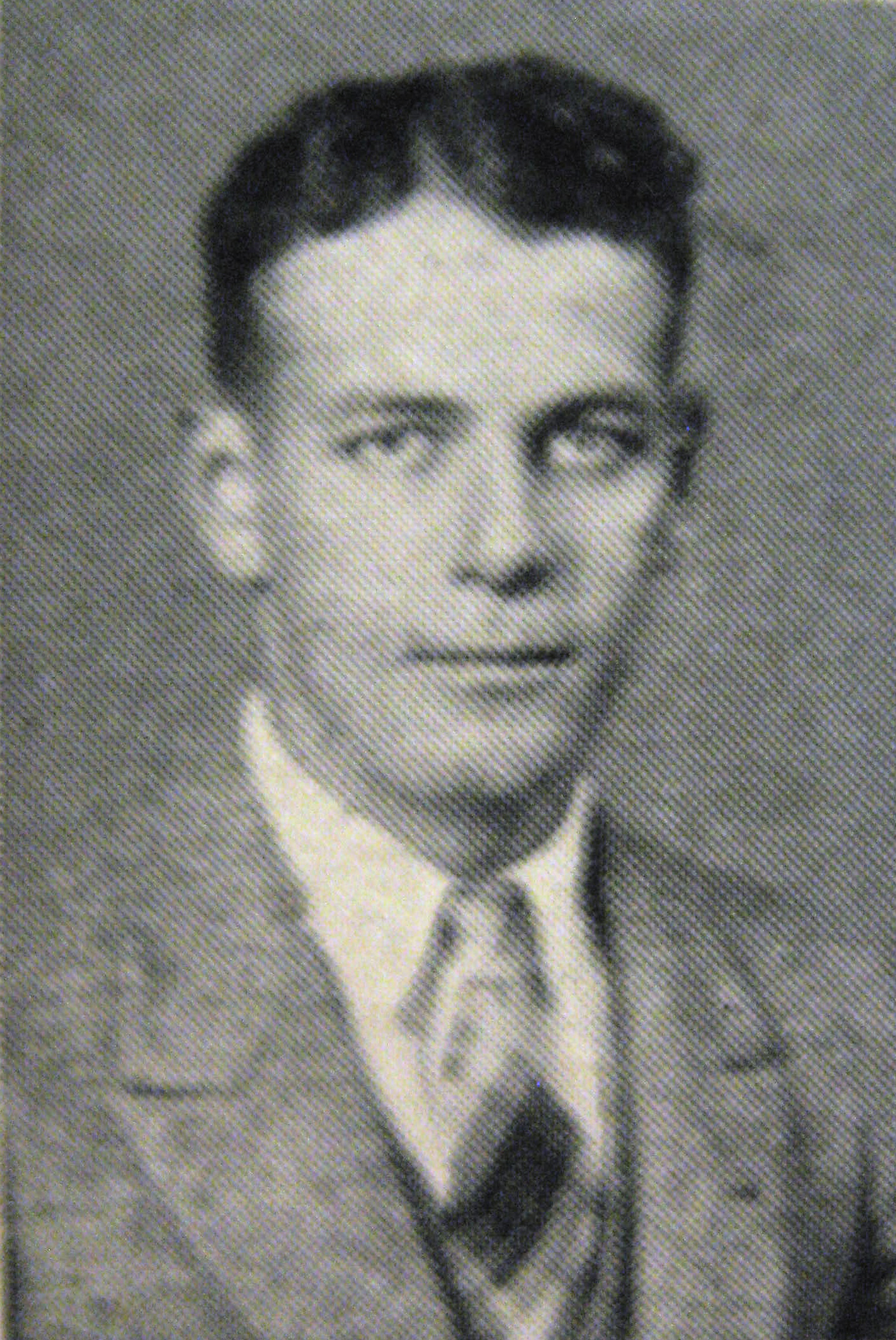 |
Ted Funk '27
Industry leader in agriculture and livestock
Brother Ted Funk graduated from the College of Agriculture in 1927 but his roots in central Illinois come from one of its most prominent families. According to the ACES website at the University of Illinois, in 1824 young Isaac Funk built his first home on a stand of timber now known as Funk's Grove, 10 miles southwest of Bloomington. He prospered by buying land and raising cattle, driving them to Chicago, which he helped establish as a cattle market. For 40 years Isaac worked at increasing his cattle herds, adding to his land holdings, and raising his eight sons and one daughter. He died shortly after the Civil War. Isaac's grandson Eugene Duncan (E.D.) grew up interested in providing seed for his neighbors, and after studying agriculture in Europe, E.D. returned home determined to start a family seed business. Joined by 12 members of the extended Funk family, E.D. formed Funk Bros. Seed Company, Inc. in 1901.
Since those humble beginnings in 1824, generations of the Funk family have worked for the betterment of agriculture. The Funk family's vision for the College of ACES Library, Information and Alumni Center as a place of information sharing inspired others to invest in the dream. The Funks' dedication to agriculture can be seen today throughout McLean County, the state of Illinois, the United States, and the world.
Brother Funk was a director of Funk Brothers Seed Company, which eventually was bought out in 1974 by a company which eventually formed the basis of Syngenta – a multibillion dollar agribusiness. Brother Funk was managing trustee of Funk Farms from 1927 to 1975, president of Funk's Grove Grain Company, vice president of the National Livestock Producers, and president of the Chicago Producers Commission Association. In 1977, Brother Funk was named Agriculturist of the Year by the McLean County Livestock Association. During the Eisenhower administration, he served on the advisory board of the Commodity Credit Corporation.
In memory of his father, Brother Funk’s son has established the Theodore Funk Scholarships in the University of Illinois College of Agricultural, Consumer and Environmental Sciences (ACES). These scholarships are awarded yearly to Illinois resident junior or senior level students with a demonstrated commitment to, and career interests in, the beef cattle industry. |
 |
R. Clayton "Doc" Ainsworth '37
Hybrid Corn Breeder
R. Clayton "Doc" Ainsworth '37 was a hybrid corn breeder and loyal member of the chapter. He worked for Iowa State University and Funk Brothers Seed Company before founding Ainsworth Seed Company in 1941. He was the third generation of Ainsworths in seed corn production. He graduated from the University of Illinois with a bachelor's degree in 1937 and received his master's degree from the U of I in 1940.
He was a founder and past president of Soybean Research Foundation, one of the first private soybean breeding organizations, and was a former director and past president of Illinois Foundation Seeds Inc. and Illinois Crop Improvement Association.
Brother Ainsworth was a former director of Mason City National Bank and chairman of Mason City Drainage District. He was a member of the Mason City United Presbyterian Church, where he served as trustee and elder.He was also a member of the Mason City Rotary Club and Lincoln Elks Lodge 914.
Information adapted from Brother Ainsworth's obituary at http://archives.lincolndailynews.com/2003/Nov/14/News_new/obit.shtml#Ainsworth |
 |
Brent Langman '87
American Shorthorn Association
Director of Communications and Marketing
Brother Brent Langman grew up in St. Anne, Illinois, learning all aspects of the agricultre industry at Langman Farms, his family's livestock, grain and trucking operation. He took his B.S. from the University of Illinois in 1987, majoring in Animal Science with an emphasis in agricultural communications, and began his career developing several trade publications. In addition to being the American Shorthorn Association's point person for communications and marketing, he worked in essentially the same capacity for the National Livestock and Meat Board, now the National Cattlemen's Beef Association, in the early 1990s. Brother Langman was also editor at Stagnito Communications and Watt Publishing developing titles in the animal production and food processing fields. |








